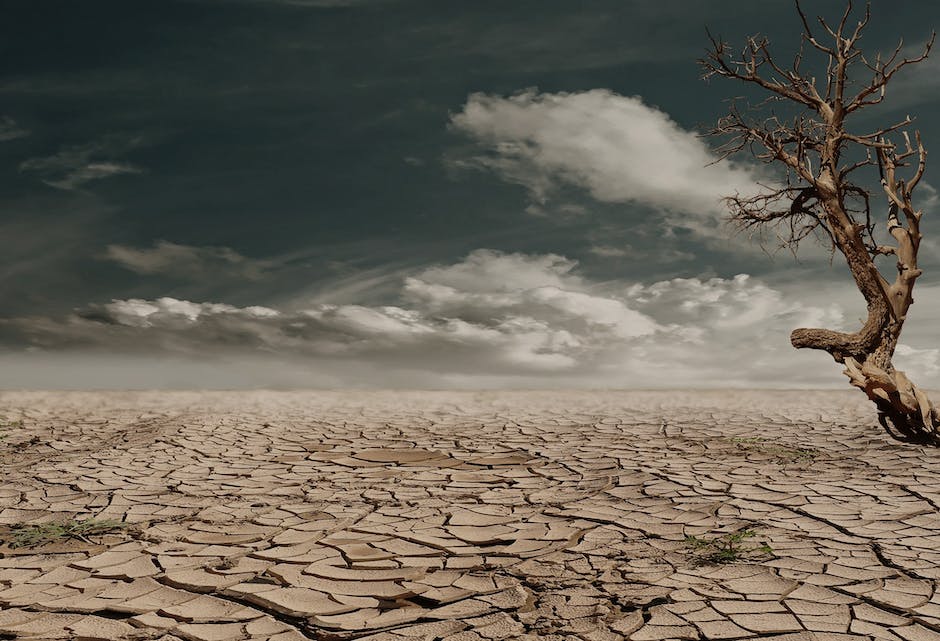Table of Contents
Leading the Fight Against Climate Change: Al Gore’s Legacy of Environmental Leadership
Introduction
Al Gore, the former Vice President of the United States, has left a lasting legacy in the realm of environmental leadership. Through his tireless efforts and advocacy, Gore has emerged as a prominent figure in the fight against climate change. His work has not only raised awareness about the pressing issue of global warming but has also inspired individuals and governments worldwide to take action. This introduction will delve into Al Gore’s legacy of environmental leadership, highlighting his key contributions and the impact he has made in the ongoing battle against climate change.
Al Gore’s Early Activism and Contributions to Climate Change Awareness

Al Gore, the former Vice President of the United States, is widely recognized as one of the leading figures in the fight against climate change. His early activism and contributions to climate change awareness have left a lasting legacy in the environmental movement.
Gore’s journey as an environmentalist began long before he became Vice President. In the 1970s, he was already expressing concerns about the impact of human activities on the planet. As a young congressman, he held hearings on the issue of global warming, bringing attention to the scientific consensus that greenhouse gas emissions were causing the Earth’s temperature to rise.
In 1992, Gore published his book “Earth in the Balance,” which became a bestseller and further solidified his position as a prominent environmental advocate. In the book, he outlined the urgent need for action to address climate change and proposed solutions to reduce greenhouse gas emissions. This publication helped raise public awareness about the issue and laid the groundwork for his future work.
During his time as Vice President under President Bill Clinton, Gore continued to champion environmental causes. He played a key role in negotiating the Kyoto Protocol, an international agreement aimed at reducing greenhouse gas emissions. Although the United States ultimately did not ratify the treaty, Gore’s efforts were instrumental in bringing global attention to the issue and pushing for international cooperation.
After leaving office, Gore founded the Climate Reality Project, a nonprofit organization dedicated to educating the public about climate change and advocating for solutions. Through this initiative, he has trained thousands of individuals to become climate activists and has organized numerous events to raise awareness about the urgency of the issue.
Gore’s most well-known contribution to climate change awareness came in the form of the documentary film “An Inconvenient Truth,” released in 2006. The film, which won an Academy Award, presented a compelling and accessible explanation of the science behind climate change and its potential consequences. It reached a wide audience and sparked a global conversation about the need for action.
In addition to his advocacy work, Gore has also been involved in the business sector, promoting sustainable and clean technologies. He co-founded Generation Investment Management, a firm that focuses on investing in companies with a commitment to environmental and social responsibility. Through this venture, he has sought to demonstrate that addressing climate change can also be economically beneficial.
Gore’s early activism and contributions to climate change awareness have had a profound impact on the environmental movement. He has helped shift public opinion and political discourse, making climate change a top priority for many individuals and governments around the world. His efforts have also inspired a new generation of activists who are committed to fighting for a sustainable future.
As the effects of climate change become increasingly evident, the need for strong leadership in this area is more important than ever. Al Gore’s legacy as an environmental leader is a testament to his dedication and passion for addressing this global challenge. His early activism and contributions have laid the foundation for continued progress in the fight against climate change, and his work will undoubtedly inspire future generations to take action.
The Impact of Al Gore’s Documentary An Inconvenient Truth
The Impact of Al Gore’s Documentary An Inconvenient Truth
Al Gore’s documentary, An Inconvenient Truth, has had a profound impact on the global conversation surrounding climate change. Released in 2006, the film presented a compelling case for the urgent need to address the environmental crisis. Through a combination of scientific evidence, personal anecdotes, and visual storytelling, Gore effectively communicated the gravity of the situation and inspired millions of people to take action.
One of the key strengths of An Inconvenient Truth was its ability to distill complex scientific concepts into easily understandable terms. Gore used clear and concise language to explain the causes and consequences of climate change, making it accessible to a wide audience. By presenting the information in a straightforward manner, he was able to dispel any doubts or misconceptions that people may have had about the issue.
The documentary also utilized powerful visual imagery to drive home its message. Through the use of charts, graphs, and animations, Gore was able to illustrate the alarming rise in global temperatures and the devastating impact it was having on the planet. These visuals helped to make the abstract concept of climate change more tangible and relatable, leaving a lasting impression on viewers.
Furthermore, An Inconvenient Truth was successful in humanizing the issue of climate change. Gore shared personal stories and experiences that demonstrated the real-world consequences of inaction. By connecting with viewers on an emotional level, he was able to foster a sense of empathy and urgency. This approach was particularly effective in reaching those who may have been skeptical or indifferent to the issue.
The impact of An Inconvenient Truth extended far beyond the movie theater. The documentary sparked a global movement, inspiring individuals, communities, and governments to take action against climate change. It served as a catalyst for increased awareness and engagement, prompting people to reevaluate their own behaviors and make more sustainable choices.
In addition to its cultural impact, An Inconvenient Truth also had a significant political influence. The film played a crucial role in shaping the public discourse surrounding climate change and putting pressure on policymakers to take action. It helped to elevate the issue to the top of the political agenda, leading to the implementation of new policies and initiatives aimed at reducing greenhouse gas emissions.
Al Gore’s documentary has left a lasting legacy in the fight against climate change. It has empowered individuals to become agents of change and has mobilized a global community dedicated to preserving the planet for future generations. The film’s impact continues to be felt today, as the urgency to address climate change becomes increasingly apparent.
In conclusion, An Inconvenient Truth has had a profound impact on the global conversation surrounding climate change. Through its clear and concise presentation of scientific evidence, powerful visual imagery, and personal storytelling, the documentary effectively communicated the urgency of the environmental crisis. It inspired millions of people to take action and played a crucial role in shaping the political discourse surrounding climate change. Al Gore’s legacy of environmental leadership is evident in the lasting impact of his documentary, which continues to inspire and mobilize individuals and communities around the world.
Al Gore’s Efforts in Promoting Renewable Energy and Sustainable Practices
Al Gore, the former Vice President of the United States, has long been recognized as a leading advocate in the fight against climate change. Throughout his career, Gore has dedicated himself to promoting renewable energy and sustainable practices, leaving behind a lasting legacy of environmental leadership.
One of Gore’s most notable efforts in promoting renewable energy is his involvement in the creation of the Climate Reality Project. This organization, founded by Gore in 2006, aims to educate the public about the realities of climate change and inspire action to address the issue. Through the Climate Reality Project, Gore has been able to reach millions of people around the world, raising awareness about the urgent need to transition to clean energy sources.
In addition to his work with the Climate Reality Project, Gore has also been a vocal advocate for the development and implementation of renewable energy technologies. He has consistently emphasized the importance of transitioning away from fossil fuels and investing in clean, sustainable alternatives. Gore has been a strong proponent of solar and wind energy, recognizing their potential to reduce greenhouse gas emissions and create jobs in the renewable energy sector.
Gore’s efforts in promoting renewable energy have not been limited to advocacy alone. He has also been actively involved in the business side of the renewable energy industry. In 2004, Gore co-founded Generation Investment Management, a firm that focuses on sustainable investing. Through this venture, Gore has been able to support companies that are leading the way in developing and implementing renewable energy technologies.
Furthermore, Gore has been a strong advocate for sustainable practices in various sectors, including transportation and agriculture. He has highlighted the importance of transitioning to electric vehicles and investing in public transportation systems to reduce carbon emissions from the transportation sector. Gore has also emphasized the need for sustainable agricultural practices, such as organic farming and regenerative agriculture, to mitigate the environmental impact of food production.
Gore’s efforts in promoting renewable energy and sustainable practices have not gone unnoticed. He has received numerous accolades for his environmental leadership, including the Nobel Peace Prize in 2007 for his efforts to raise awareness about climate change. Gore’s work has inspired countless individuals and organizations to take action and make a difference in the fight against climate change.
However, Gore’s legacy of environmental leadership extends beyond his individual efforts. He has been instrumental in shaping global climate policy through his involvement in international negotiations, such as the United Nations Framework Convention on Climate Change. Gore has consistently called for stronger commitments to reduce greenhouse gas emissions and has played a key role in advancing the global climate agenda.
In conclusion, Al Gore’s legacy of environmental leadership is characterized by his tireless efforts in promoting renewable energy and sustainable practices. Through organizations like the Climate Reality Project and Generation Investment Management, Gore has been able to raise awareness about climate change and support the development of clean energy technologies. His advocacy for sustainable practices in various sectors has also been influential in driving positive change. Gore’s contributions to the fight against climate change have left a lasting impact and serve as an inspiration for future generations to continue the fight for a sustainable future.
Al Gore’s Continued Advocacy and Influence in Climate Change Policy
Al Gore, the former Vice President of the United States, has long been a prominent figure in the fight against climate change. Even after leaving office, Gore has continued to advocate for environmental issues and has had a significant influence on climate change policy. His dedication to raising awareness and finding solutions to this global crisis has left a lasting legacy of environmental leadership.
One of the ways in which Gore has continued his advocacy is through his organization, The Climate Reality Project. Founded in 2006, this nonprofit aims to educate the public about the realities of climate change and empower individuals to take action. Through training programs and global events, Gore and his team have reached millions of people, inspiring them to become climate activists in their own communities.
Gore’s influence extends beyond grassroots activism. He has also played a key role in shaping climate change policy at the national and international levels. In 2007, he was awarded the Nobel Peace Prize for his efforts to raise awareness about climate change and promote solutions. This recognition further solidified his position as a leading voice in the fight against climate change.
In recent years, Gore has focused on engaging with world leaders to push for stronger climate policies. He has attended numerous international conferences, including the United Nations Climate Change Conferences, where he has urged governments to take bold action. His ability to communicate the urgency of the issue and his deep understanding of the science behind climate change have made him a trusted advisor and influencer in these high-level discussions.
Gore’s impact on climate change policy can be seen in the Paris Agreement, a landmark international treaty aimed at limiting global warming. He played a crucial role in the negotiations leading up to the agreement, using his expertise and influence to push for ambitious targets and commitments. The agreement, signed by nearly every country in the world, represents a significant step forward in the global fight against climate change.
Beyond his advocacy and policy work, Gore has also been a champion of renewable energy. He has invested in and promoted clean technologies, recognizing their potential to reduce greenhouse gas emissions and create sustainable economic growth. Through his investments and partnerships, Gore has helped accelerate the transition to a clean energy future.
Gore’s legacy of environmental leadership is not without its critics. Some have accused him of alarmism or questioned the validity of his claims. However, the overwhelming scientific consensus supports the reality of climate change and the need for urgent action. Gore’s tireless efforts to communicate this message and mobilize others to join the fight have been instrumental in raising awareness and driving change.
As the impacts of climate change become increasingly severe, the need for leaders like Al Gore is more important than ever. His continued advocacy and influence in climate change policy have helped shape the global response to this crisis. Through his organization, The Climate Reality Project, his engagement with world leaders, and his promotion of renewable energy, Gore has left a lasting legacy of environmental leadership. It is up to all of us to build upon his work and ensure a sustainable future for generations to come.
Q&A
1. What is Al Gore’s legacy in terms of environmental leadership?
Al Gore’s legacy in terms of environmental leadership is his dedication and advocacy in the fight against climate change.
2. How has Al Gore contributed to the fight against climate change?
Al Gore has contributed to the fight against climate change through his efforts to raise awareness, educate the public, and promote sustainable solutions.
3. What are some notable achievements of Al Gore in the field of environmental leadership?
Some notable achievements of Al Gore in the field of environmental leadership include the documentary “An Inconvenient Truth,” his work in establishing the Climate Reality Project, and his efforts to influence global climate policy.
4. How has Al Gore’s leadership influenced the global conversation on climate change?
Al Gore’s leadership has influenced the global conversation on climate change by bringing the issue to the forefront of public consciousness, inspiring action, and encouraging international cooperation to address the challenges of climate change.
Conclusion
Al Gore’s legacy of environmental leadership is centered around his efforts in leading the fight against climate change. Through his advocacy, activism, and initiatives, Gore has played a significant role in raising awareness about the urgent need to address climate change and its potential consequences. His work, including the documentary “An Inconvenient Truth” and the establishment of organizations like The Climate Reality Project, has helped mobilize global action and push for policy changes to mitigate the impacts of climate change. Gore’s dedication to this cause has left a lasting impact on the environmental movement, inspiring individuals and governments alike to take action and prioritize sustainability. Overall, Al Gore’s legacy as an environmental leader is one of unwavering commitment and a catalyst for change in the fight against climate change.




